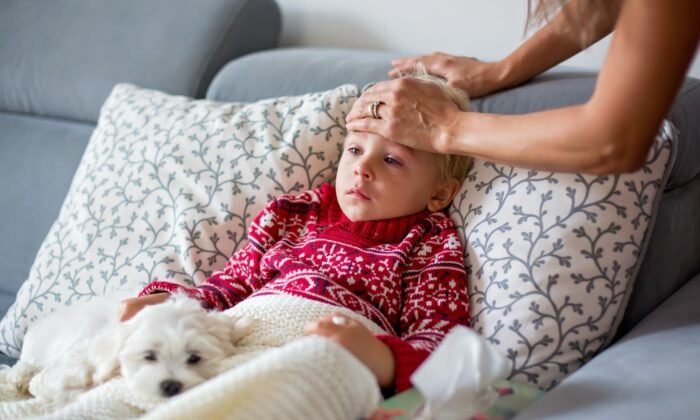Brightening up Spring: The Lowdown on ‘Slapped Cheek Disease’
During late winter and spring, children can become infected with parvovirus B19, causing a red rash on the cheeks and giving the appearance of being slapped. However, medical professionals say despite the rash, which can spread to the rest of the body within days, children can recover from the sickness at home.
The rash can last up to three weeks, and may appear to come and go, the CPS says.
Within one to four days of the rash appearing on the face, it can spread to the upper body and arms and then to the rest of the body. It can also be itchy, says the CPS.
By this stage, however, children are no longer contagious, says Dr. Caroline Quach, an infectious disease specialist at the Montreal Children’s Hospital.
Other symptoms include fever, headache, cold-like symptoms such as a runny or stuffy nose, upset stomach, nausea, and diarrhea.
As with other viruses, kids can pick it up from someone with the illness, by touching an object they’ve touched, or through the air if someone with the sickness is coughing or sneezing, the website says.
For most children, the disease is not dangerous. However, it may pose a risk to children with chronic anemia, which can make their condition worse. It’s also a risk to those undergoing chemotherapy, the CPS says.
“If you have already had the virus,” Dr. Quach said, “you will be protected for life, whether you were a child when you contracted it or much older.”
If your child becomes sick, there are some things you can do at home to help them recover: keep them hydrated, ensuring they get rest, and use acetaminophen or ibuprofen (Tylenol and Advil) for fever and aches. If kids are feeling well enough, they can continue to go to school or daycare, as they are not contagious after the rash appears.
If fever persists for two or three days or the child complains of ear or neck pain, CPS says it is best to contact a doctor.





